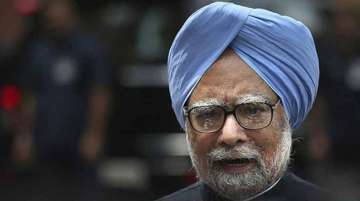Former prime minister Manmohan Singh said on Monday rising inequality was a concern and the country cannot allow extreme poverty or economic disparity as it is a welfare state.
Speaking at the release of a social development report titled 'Rising Inequalities in India, 2018', Singh said some regions and social groups were extremely poor and vulnerable despite various anti-poverty programmes and affirmative policies being followed.
The former prime minister said India was one of the fastest-growing economies in the world today, but the high rate of economic growth had also been associated with rising inequality, including economic, social, regional and rural-urban inequalities.
"Rising inequalities concern us because adverse effects of economic, social and political inequalities can prove damaging to our march towards accelerated, inclusive and sustainable growth," he said here.
Singh described the rising inequality as a global phenomenon, with the exception of countries like Sweden, Germany and others. "India is a welfare state and, therefore, we cannot allow either extreme poverty or inequality," he said.
The Congress leader highlighted several schemes initiated during the first term of the United Progressive Alliance government, such as the Right to Education Act, Right to Information Act, Forest Rights Act, Hindu Succession (Amendment) Act, Mahatma Gandhi National Rural Employment Guarantee Act. He said an effective implementation of these rights would address the issue.
According to the report, brought out by the Council of Social Development, India has seen a six-fold increase in the inequality of wealth between 2000-2017. It noted that the country's top one per cent of the population share nearly 22 per cent of the national income in 2015, an increase from six per cent in the early 1980s.
"India's richest 10 per cent own as much as 80.7 per cent of the country's total wealth, while 90 per cent own only 19.3 per cent of its total wealth," it said, adding that one per cent of the country's richest own 58.4 per cent of the total wealth.
The report, edited by professors T Haque and D N Reddy, comprises 22 chapters written by well-known economists and other social scientists on various aspects of inequality.
Also Read: Delhi emerging as crime capital of India: AAP leader Sanjay Singh
Latest India News
